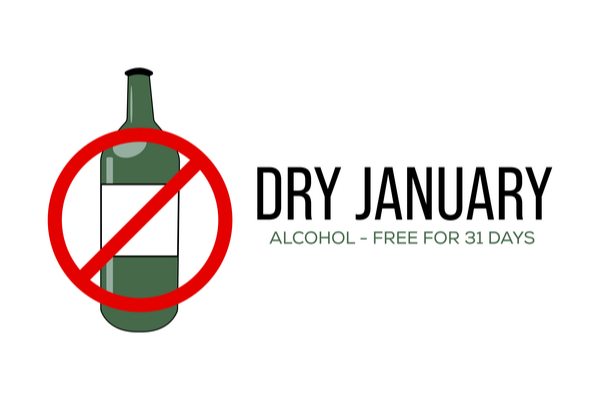Dry January, the annual no-alcohol challenge, offers a reprieve, a reset, a chance to reflect on the influence alcohol has on our lives. People vow to trade the haze of a hangover for 31 days of mental clarity. As USA Today reports, the popular trend can have a range of health benefits, including feeling more alert and well rested, along with other perks.
“That’s a lot of the reasons why people engage in Dry January and this journey to begin with, because there are little things that bother them about the way that alcohol makes them feel,” said Dr. Dawn Sugarman, a research psychologist at McLean Hospital in Massachusetts and an assistant professor at Harvard Medical School. “It’s really examining your relationship with alcohol.”
But whether you would like to cut out alcohol completely, or just scale back on your drinking, experts say there are a few steps you can take to keep healthy habits going all year.
First, make a list of Pros and Cons.
Sugarman says people who want to continue avoiding or limiting alcohol after Dry January can make a pros and cons list. Think about why you want to cut back and what you don’t enjoy about drinking. “But on the other hand, what are the things that you like about drinking? Because once you understand those, you can develop a more realistic and smarter plan,” Sugarman said. “If you enjoy drinking because you feel less stressed, you can work on figuring out what are some other ways you can reduce stress in your life,” she added. “Some people exercise to relieve stress. Other people find that meditation or mindfulness can be helpful for them when they’re stressed.”
Next, it’s important to Have a Plan.
Sugarman also recommended that people who want to limit how much they drink should have a plan for social situations where ordering a cocktail or a beer might be the norm. “You don’t want to be caught off guard,” she said. “Think about what you’re going to do. Are you going to get a non-alcoholic drink and hold that so that you’re holding a drink and that makes you feel better? “If you expect that people are going to ask you why you’re not drinking or do you want a drink, really the best thing to do is to practice in advance refusal skills, how you’re going to say no.”
Dr. Jamile Wakim-Fleming, a liver specialist at the Cleveland Clinic and an assistant professor at Case Western Reserve University and Lerner College of Medicine says it’s essential to talk to your social group or family members about your plan to cut back. “If you decide you want to stop, but you continue to see the same people who drink around you, you’re not going to stop,” she said.
Finally, Give it Time.
Wakim-Fleming said it usually takes about a month to see a significant effect after you change how much or how often you drink. “They realize that ‘I’m a different person. I feel better. I’m thinking better. My reflexes are better. My sleep is better. My memory is better,’” she said.
But Wakim-Fleming also says that even if you don’t cut out alcohol entirely, you could still see some of these changes. “If they could minimize the amount they drink, it’s going to give them a benefit,” she said. “If they used to drink three glasses a night, maybe (they) should do two. If they drank every day, maybe they could do it every other day. Any amount that is less than before is a great amount.”
For more tips on how to go it sober, the National Institute on Alcohol Abuse and Alcoholism also recommends choosing a limit on how much you want to drink, sipping a drink slowly, and more.
—
Photo Credit: The Creative Guy / Shutterstock.com
